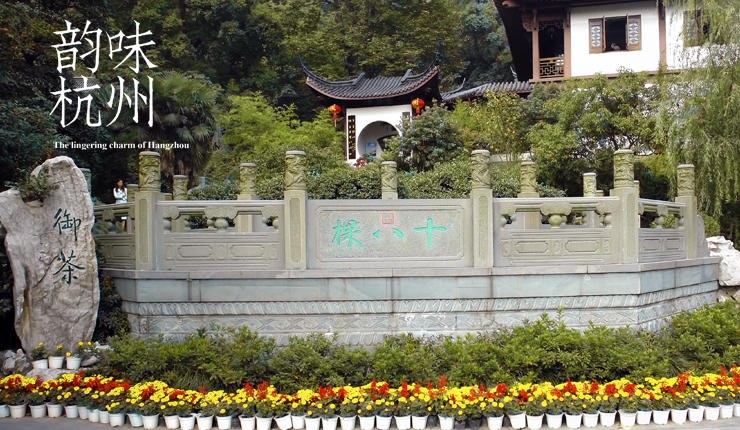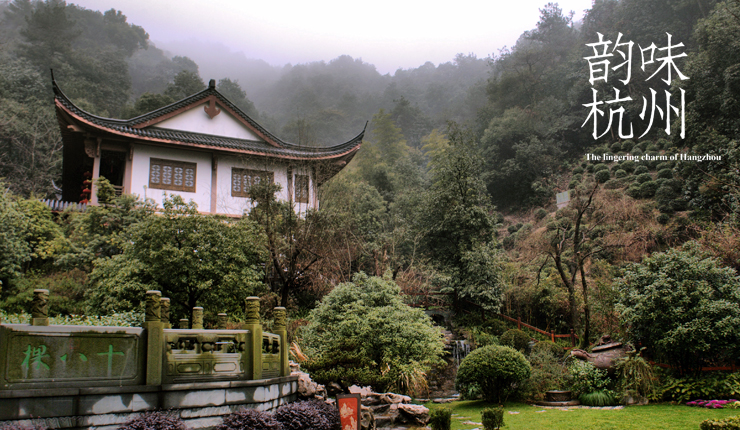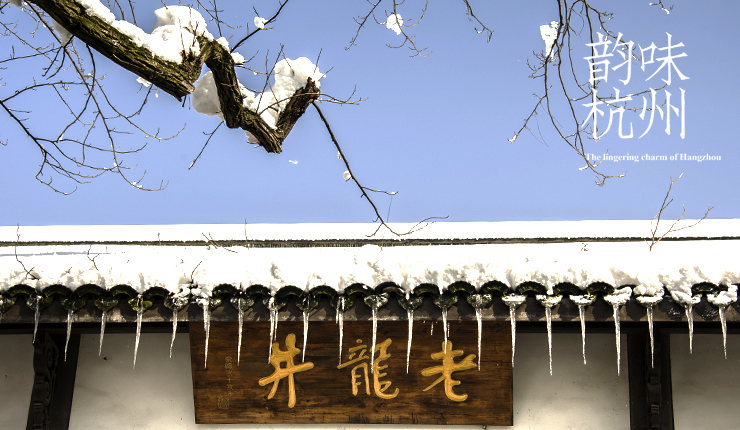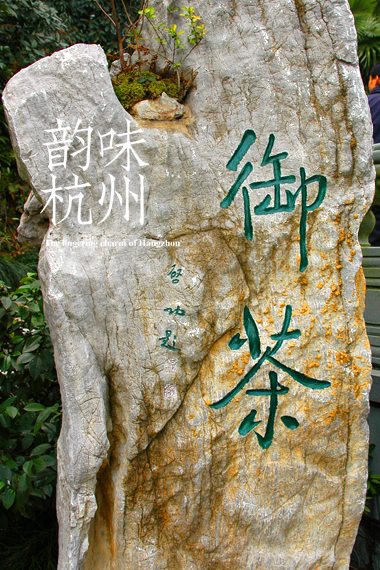
This tea destination is situated at Lion Peak Hill (Shifengshan) in Longjing Village, the birthplace of West Lake Longjing tea (also known as Dragon Well tea). The garden possesses 18 ancient tea trees. According to legend, Qing Dynasty Emperor Qianlong (1711-1799) designated them exclusively for imperial use. People were dispatched to care for the trees, pick and process tea leaves, and send them back to the capital each year. The common folk therefore called them the “imperial tea trees.”
The garden involves historic sites, including the old Longjing (Dragon Well), the Song Guangfu Temple, the Song Plum Trees, Nine Creeks Headwaters (Jiuxiyuan), Lord Hu (Hugong) Pavilion, Biancai Pagoda, and Lion Peak Hill (Shifengshan). Dozens of teahouses are scattered throughout the grounds.

Being part of the beautiful West Lake Scenic Area, Old Longjing • Eighteen Emperor Tea Trees is located at the foot of Longjing Lion Peak, the original and core tea area of West Lake Longjing Tea. The rich historical humanistic resources in the area include Eighteen Emperor Tea Trees, Old Longjing, Longhong Pavilion, Songguangfu Yard, Songmei, Source of Nine Brooks, Residence of HU, Tomb of HU, Biancai Pavilion, Biancai Tower and Lion Peak. Besides, there’re well-arranged architectures such as Imperial Tea House, Lion Peak Attic, Longjing House, Longjing Hall, Yunxi Hall, Longhong Hall and Hall of HU. All these elegant and antique architectures surrounded by mountains and canyons perfectly match with the environment.
(Source: Old Longjing Reception Center of the West Lake, Zhejiang)



